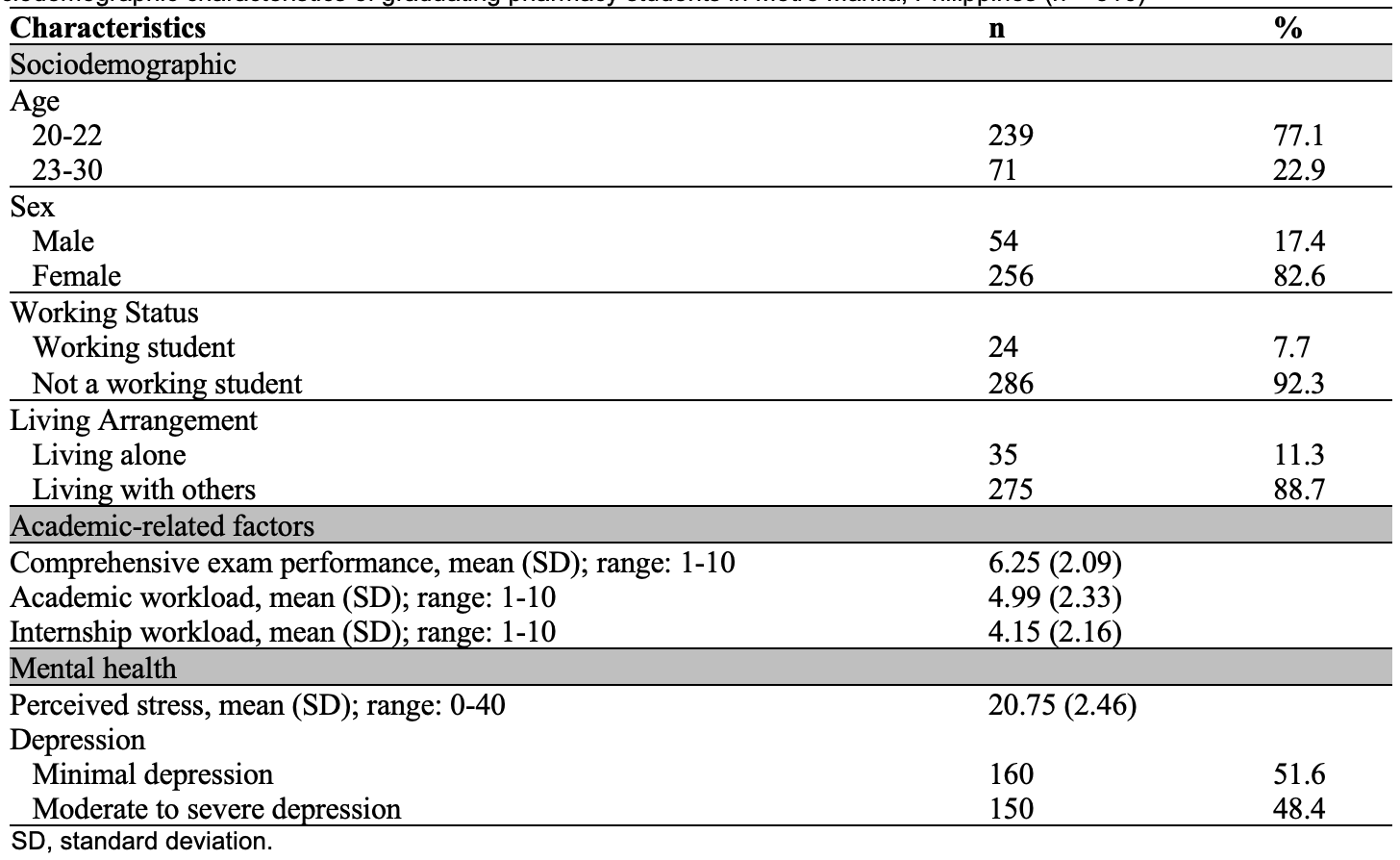VOLUME 17 (Supplement)

SciEnggJ 17 (Supplement) 455-460
available online: December 31, 2024
DOI: https://doi.org/10.54645/202417SupZKK-84
*Corresponding author
Email Address: aevon.balahadia06@gmail.com
Date received: 8 January 2024
Date revised: 20 September 2024
Date accepted: 31 December 2024
ARTICLE
Determinants of perceived stress and depression among graduating pharmacy students in Metro Manila, Philippines
Philippines
2Department of Public Health Sciences, University of Connecticut
School of Medicine, Farmington, CT 060330, USA
Objectives. The pharmacy program's academic requisite of comprehensive examinations, academic workload, and internship workload may be significant factors that increase the risk of perceived stress and depression among students. However, further investigation of these stressors focusing on graduating pharmacy students is still insufficient. Hence, we aimed to examine the factors associated with perceived stress and depression among the said population.
Methodology. We conducted a cross-sectional study among 310 graduating pharmacy students in Metro Manila, Philippines. Students were chosen through snowball sampling and recruited in person or on social media. We used the 10-item Perceived Stress Scale to measure perceived stress and the 9-item Patient Health Questionnaire to assess depression. We used linear regression to examine the factors associated with perceived stress and logistic regression to examine the factors associated with depression.
Results. In this study, only academic workload was positively associated with perceived stress. Better comprehensive examination (exam) performance was associated with a reduced risk of moderate to severe depression (AOR = 0.79; 95% CI = 0.71, 0.89), whereas greater academic workload was associated with an increased risk of moderate to severe depression (AOR = 1.11; 95% CI = 1.05, 1.17). None of the sociodemographic factors were associated with perceived stress and depression.
Conclusion. Greater academic workload is associated with increased perceived stress and risk of depression among graduating pharmacy students. On the other hand, better comprehensive exam performance is associated with a reduced risk of depression. Efforts to improve academic workload and comprehensive exam performance are warranted to help protect the mental health of graduating pharmacy students.
© 2026 SciEnggJ
Philippine-American Academy of Science and Engineering